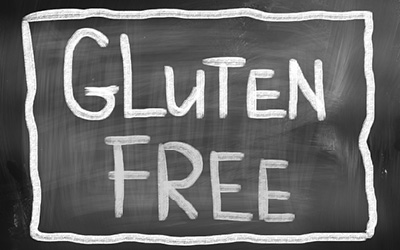 You would very hard pressed to turn on your television or click on your favorite website and not find a commercial or a pop-up advertising the latest and greatest health and weight loss plan or new dietary trend.
You would very hard pressed to turn on your television or click on your favorite website and not find a commercial or a pop-up advertising the latest and greatest health and weight loss plan or new dietary trend.
Most of us are familiar with fat-free, sugar-free and carbohydrate-free options; but what about gluten-free options? More and more we are hearing about this. So, what is eating gluten-free all about? Is it a craze or a trend soon to pass along the wayside or a legitimate solution to a dietary or even medical concern?
What is Gluten? Gluten is a protein found in wheat that gives elasticity to dough, helping it to rise and hold its’ shape. Technically gluten is a combination of gliadin and glutenin which are joined by a starch in a variety of grains. Gluten is the main protein in wheat flour and accounts for 47% of the total protein content where gliadin enables the bread to rise.
People who suffer from an autoimmune digestive ailment known as celiac disease need to avoid foods containing gluten. Common foods containing gluten include pastas, dumplings, couscous, gnocchi and several varieties of noodles But the trend in avoiding gluten has become much more wide spread, many non-celiac suffers have decreased or eliminated gluten from their diets as well. Will eliminating gluten from your diet help you lose weight and make better overall dietary choices? There are many products being marketed to the general population promising they can. Even Domino’s pizza offers a gluten-free pizza crust; however it comes with a cautionary disclaimer that their crust is not recommended for true celiac sufferers.
So maybe you have considered going gluten-free, you probably assume that you must stop eating breads, pastas and cereals; etc. Not all of this is true. But it will cost you more. On average, the estimated increase in your weekly grocery bill is nearly 30%. So be sure to keep this in mind when voluntarily eliminating gluten from your diet. Also, you lose a significant amount of your protein intake by eliminating gluten.
Let’s take a look at some facts about gluten, Celiac disease and gluten sensitivity vs. gluten intolerance.
Now let’s discuss Celiac Disease. People afflicted with this disease cannot eat foods or use products containing gluten without causing damage to the small intestine. The villi, which line the small intestine, are damaged and potentially destroyed when those with the disease eat or use anything containing gluten. Without healthy villi, nutrients from food are not readily absorbed into the bloodstream, no matter what the quantity or quality of food that is eaten. Imagine filling your gas tank in your car and it still won’t run. Pretty frustrating I would say.
The National Digestive Diseases Center estimates roughly 2 million people in the U.S. are affected by celiac disease; or approximately 1 in every 133 people. The symptoms of gluten intolerance often mimic those of Celiac Disease, abdominal cramping, bloating, diarrhea etc. However; gluten intolerance sufferers do not appear to have the damage to the intestinal lining like true Celiac sufferers. To date there is no evidence that shows gluten intolerance causes permanent damage over long periods of time.
Finally, gluten sensitivity, which affects approximately 18 million people in the U.S., is the most common negative reaction to gluten. The symptoms are similar to, but less severe than those of gluten intolerance. Again, it does not appear to cause any intestinal lining damage.
As always, if you have been experiencing any of the above symptoms contact your primary care provider or physician as soon as possible.
While going gluten free makes perfect sense to celiac sufferers, what about the rest of us? It appears that most physicians and primary care providers agree if modifications in gluten intake make you feel better and alleviate any sort of the discomfort; go for it. Although there is no medical or scientific evidence proving that a gluten free diet will ensure weight loss, if it helps you feel better and you keep tabs on your protein intake, go for it.
